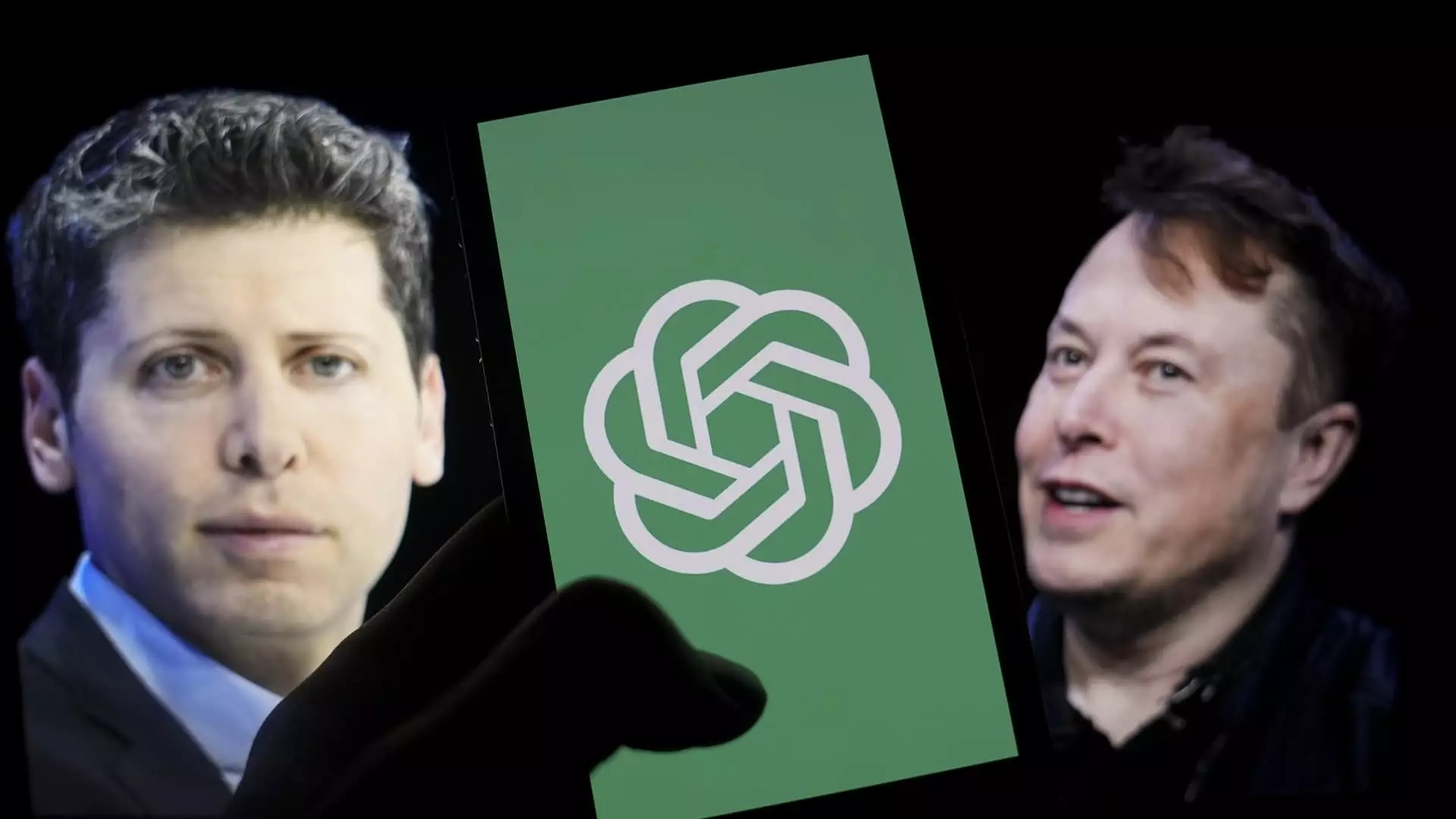The technology and artificial intelligence (AI) landscape is witnessing a high-stakes legal confrontation involving prominent figures such as Elon Musk and OpenAI. This article dissects the ongoing feud, exploring the implications of Musk’s actions against the backdrop of the increasingly competitive AI sector, with an emphasis on corporate ethics and the evolving nature of business in this field.
Elon Musk, entrepreneurial icon and the founder of several innovative companies, has initiated legal action aimed at halting OpenAI’s transition into a fully for-profit entity. Alongside his AI venture, xAI, and former OpenAI board member Shivon Zilis, Musk’s legal team filed a preliminary injunction against OpenAI, alleging that the company is abusing its position in the AI marketplace. Specifically, Musk’s suit contends that OpenAI is coercing its investors to refrain from supporting competing firms, including xAI. This allegation suggests a troubling ethical breach at the heart of OpenAI’s operations, raising questions about fair play in an industry that is rapidly evolving and expanding.
The legal framework underpinning Musk’s claims is rooted in federal racketeering laws, which are typically employed in cases involving organized crime. By invoking these statutes, Musk’s attorneys are proposing that OpenAI’s actions represent an illegal conspiracy to undermine competition. Notably, in November, the legal complaints expanded to include accusations of antitrust violations tied to agreements between OpenAI and Microsoft regarding investment restrictions on rival AI developers.
The significance of OpenAI’s alleged solicitation of investor agreements that limit funding options for competitors cannot be overstated. Such practices not only inhibit fair competition but also raise fears of monopolistic behaviors—an unfortunate reality in industries characterized by rapid technological advancements and formidable capital requirements. Musk’s legal battle emphasizes the dire need for regulatory frameworks that can effectively address and mitigate the risk of such monopolistic tendencies.
OpenAI’s transition from a non-profit foundation to a capped-profit model, and soon towards a fully for-profit structure, represents a broader trend in the technology sector where maximizing shareholder value often takes precedence over ethical considerations. This shift, while potentially increasing investor confidence and capital influx, poses severe questions regarding the long-term impacts on innovation and ethics in AI development.
The restructuring is also a critical point in Musk’s legal allegations, with his attorneys arguing that OpenAI’s newly formed governance structure is designed to shield it from liability while enabling the aggressive pursuit of profits at the expense of competitors. As OpenAI seeks to navigate the complexities of this transformation, the implications on market competition, ethical governance, and corporate responsibility become increasingly pronounced.
As OpenAI navigates this contentious period, it remains a significant player within the AI market, particularly with the growth of its chatbot, ChatGPT. The financial backing from tech titan Microsoft—totalling nearly $14 billion—illustrates the intricate web of influences operating within the sector. Reports indicate that despite heavy investments, Microsoft has faced substantial losses as it reflects the unpredictable nature of funding AI ventures, highlighting the high stakes involved.
Moreover, as competition intensifies, with new entrants such as xAI emerging, the market dynamics for generative AI are set to shift dramatically. Predictions estimating the generative AI market could reach over $1 trillion in revenue in the coming decade indicate the immense financial incentive driving participants in this sector. Consequently, the potential for aggressive corporate tactics, such as those Musk alleges against OpenAI, becomes a pressing concern for regulators and stakeholders.
The legal battle between Musk and OpenAI is emblematic of the broader tensions in the AI industry—where innovation rapidly outpaces regulatory frameworks. As Musk’s attorneys rally against perceived corporate malfeasance, the outcome of this dispute may set critical precedents regarding ethical conduct and competition in the tech space.
This conflict raises vital questions about the ethical implications of corporate strategies in the AI sector. As companies vie for dominance, the interplay of legal frameworks, corporate governance, and market competition will undoubtedly shape the future landscape of technological innovation. The resolution of this case may provide crucial insights, not just for Musk and OpenAI, but for the entire AI ecosystem moving forward. As society becomes ever more entwined with AI technologies, the need for transparency, fairness, and integrity in corporate practices has never been more urgent.

